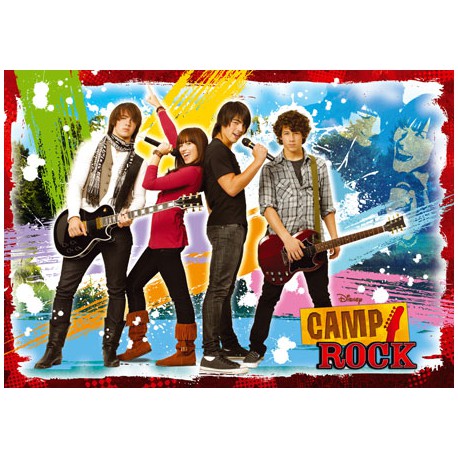
Introduction
Released in 2008, Camp Rock quickly became a cultural phenomenon. Starring Demi Lovato and the Jonas Brothers, this Disney Channel Original Movie not only captured the hearts of millions but also set a benchmark in the musical genre for young audiences. Its emphasis on self-discovery, friendship, and the pursuit of dreams resonated strongly, making it a significant exploration of youth culture during the late 2000s. Even years after its release, Camp Rock’s themes and music continue to be relevant, especially among the younger generations who encounter it through various platforms.
Key Themes of Camp Rock
At its core, Camp Rock is not simply a film about music; it delves deep into themes of identity, empowerment, and resilience. The story revolves around Mitchie Torres, played by Demi Lovato, who aspires to become a musician despite her insecurities and financial limitations. The camp setting serves as a backdrop for personal growth as Mitchie learns to embrace her authentic self while overcoming challenges, such as rivalry and self-doubt. The journey teaches young viewers the importance of believing in oneself and the positive influence of supportive friendships.
Musical Elements and Popularity
The soundtrack of Camp Rock, featuring catchy anthems such as “This Is Me” and “We Rock,” contributed significantly to the film’s popularity. The music played a crucial role in not only advancing the storyline but also in shaping a cultural landscape. Critics and audiences alike praised the songs for their uplifting messages and relatable lyrics, leading the album to achieve commercial success. This impact can be seen through various social media platforms, where songs from the movie frequently resurface, often sparking nostalgia among fans who grew up with the film.
The Enduring Legacy
Camp Rock’s legacy extends beyond its initial release, as it remains influential in shaping the discourse around youth experiences in music and representation. Educational programs and youth camps continue to draw inspiration from its message of empowerment and self-expression. Furthermore, the film paved the way for conversations about mental health and authenticity in a world saturated with social media influence, highlighting the struggles that many young people face today.
Conclusion
As we look back on the impact of Camp Rock, it is clear that its reach transcends generations. The blend of music, relatable storytelling, and heartfelt performances continues to resonate, making it not just a nostalgic piece of pop culture, but a springboard for dialogue surrounding youth identity and resilience. With musical revivals and reboots being popular in the entertainment industry, it wouldn’t be surprising to see a resurgence of interest in Camp Rock, further highlighting its significant role in the landscape of youth-oriented media.
You may also like

The Importance of Storytelling in Modern Society

Understanding the Fall Season: Change, Beauty, and Tradition
